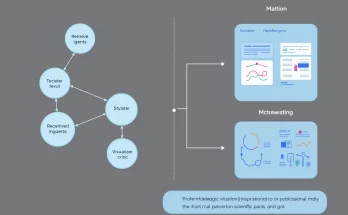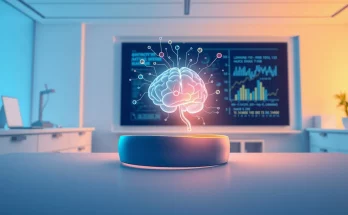In recent discussions surrounding artificial intelligence, a new study from the MIT Media Lab has raised concerns about the effects of ChatGPT on critical thinking abilities. The study aimed to investigate whether the use of AI chatbots, such as ChatGPT, may be eroding crucial cognitive skills among students and younger users.
The Study: Design and Findings
The study involved 54 participants aged between 18 to 39 years from the Boston area, who were divided into three distinct groups. Each group was tasked to create essays under varying conditions:
- Using OpenAI’s ChatGPT.
- Utilizing Google’s search engine.
- Engaging in the task without any technological assistance.
Researchers recorded brain activity using an EEG across 32 regions and found that participants using ChatGPT exhibited the lowest brain engagement. They consistently underperformed in neural, linguistic, and behavioral levels, leading to increased laziness and a tendency to depend on copy-pasting as their essays progressed.
The Risks of Over reliance on AI
The findings indicate that the frequent use of large language models (LLMs) like ChatGPT might not only harm immediate learning outcomes but could also have long-term implications for brain development, particularly among younger individuals who are still in their formative years. The principal author of the study, Nataliya Kosmyna, underscored the urgency of discussing these results, fearing that policymakers might embrace such technology for educational purposes indiscriminately.
Key Concerns Raised by Researchers
- AI Dependency: Users risk becoming too reliant on AI tools, undermining their ability to think critically and creatively.
- Decreased Engagement: Higher reliance on AI led to lower attentional engagement and executive control as indicated by EEG results.
- Educational Implications: The study points out the potential adverse effects on educational practices, particularly if AIs are implemented in early educational settings.
Contrasting Outcomes: Without AI vs. Google Search
Interestingly, participants who wrote without any AI assistance showed the highest levels of neural connectivity, contributing positively to creativity and memory retention. Comparatively, the group that employed Google Search reported active brain function and higher satisfaction with their essays, showcasing the stark contrast between traditional information retrieval methods and generative AI.
Post-experiment rewrites revealed further insights: the ChatGPT group struggled to recall what they had previously written, showing less engagement with the material. In contrast, those who initially worked without AI benefited when they later incorporated ChatGPT into their tasks, indicating that AI, used wisely, holds potential to complement educational practices.
Cautions for Future Use of AI in Education
The publication of this pre-review paper signifies a crucial move in highlighting the ongoing dialogues about AI’s role in education. With the research suggesting that younger minds are particularly vulnerable, experts like psychiatrist Dr. Zishan Khan stress the significance of promoting balanced approaches to AI in educational contexts.
Recommendations for Legislation and Awareness
- Education Frameworks: Legislative action is needed to ensure tools like AI are introduced in a structured, awareness-focused manner.
- Understanding Cognitive Development: Educators must recognize the necessity for analog engagement in the learning process to foster genuine cognitive development.
- Research Continuation: Ongoing studies must continue to explore the cognitive impacts of AI in various educational and professional settings.
The discourse around AI’s role in shaping future cognitive abilities is still in its infancy, and careful research and policymaking are critical. Mitigating risks while harnessing the potential benefits of AI-enhanced learning experiences stands as a significant challenge for educators, researchers, and policymakers moving forward.
The findings from the MIT study suggest that while the convenience of AI tools like ChatGPT offers numerous advantages, over reliance can extract a toll on essential critical thinking abilities. Caution and balanced integration of AI into educational frameworks may help nurture the cognitive skills necessary for our increasingly complex world.



